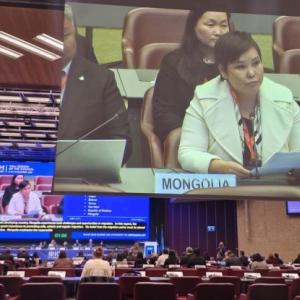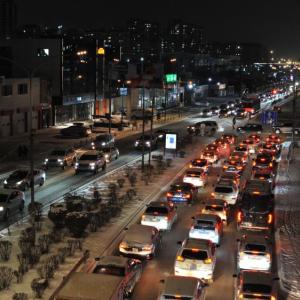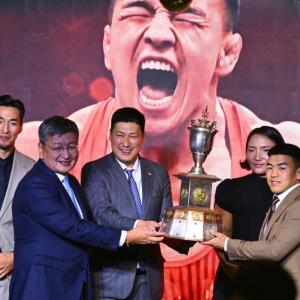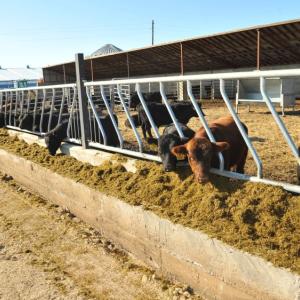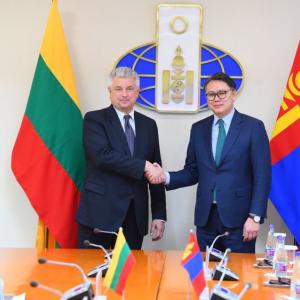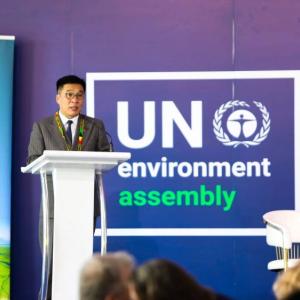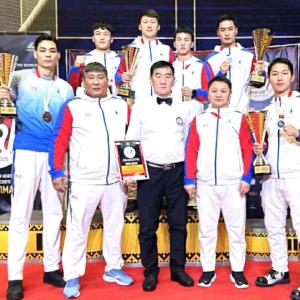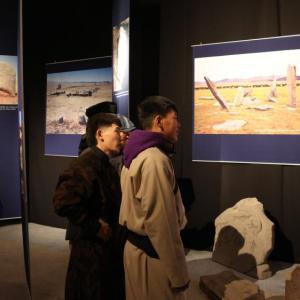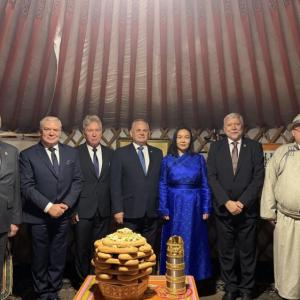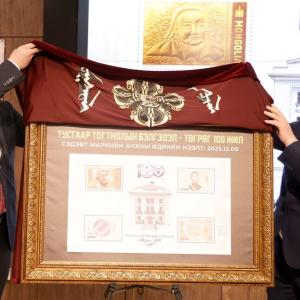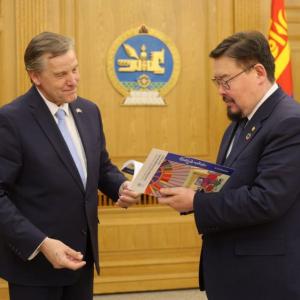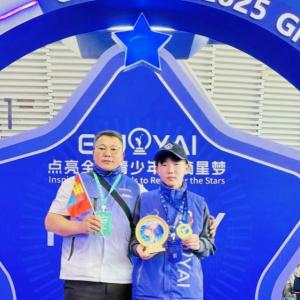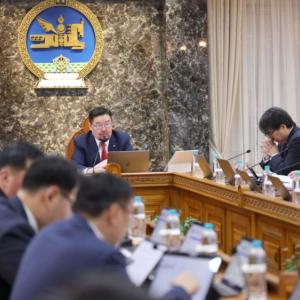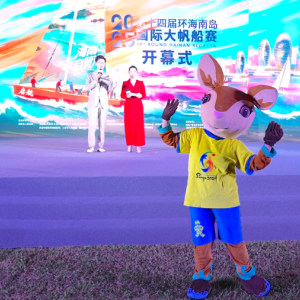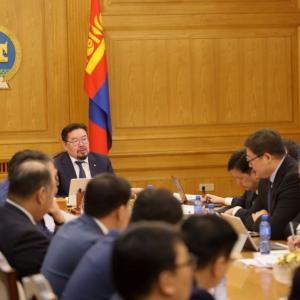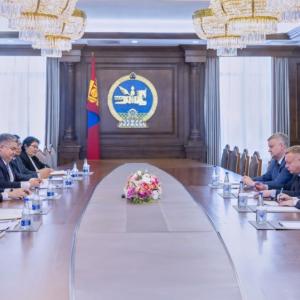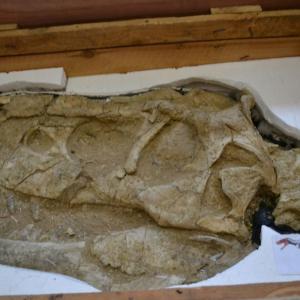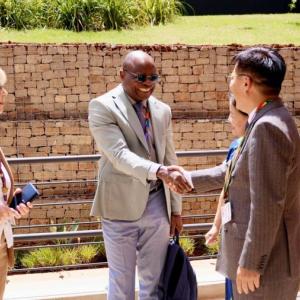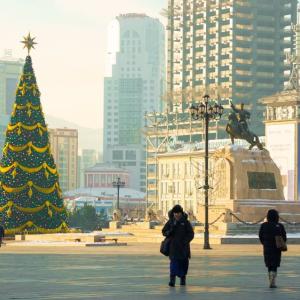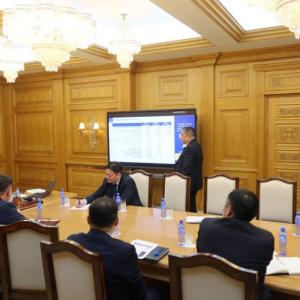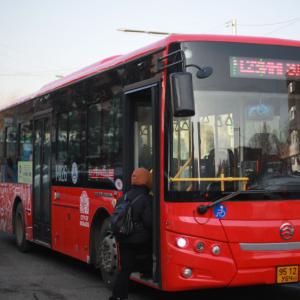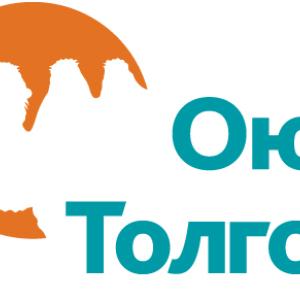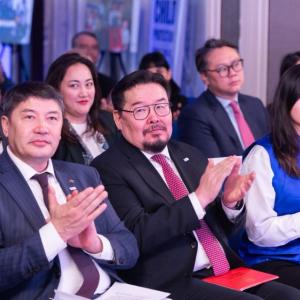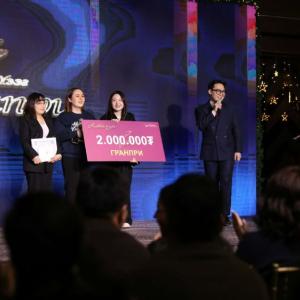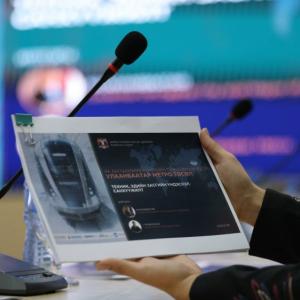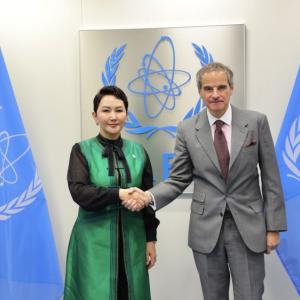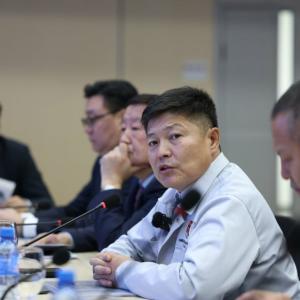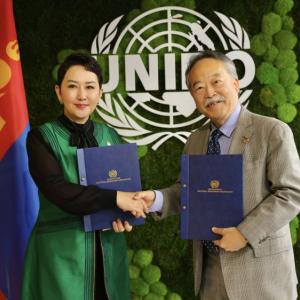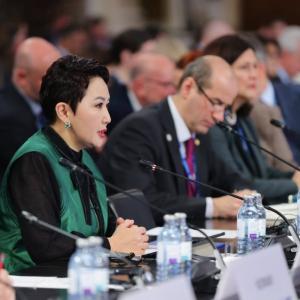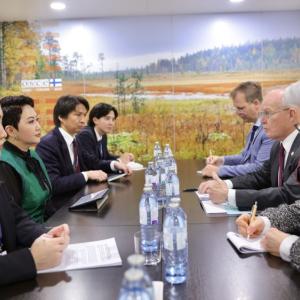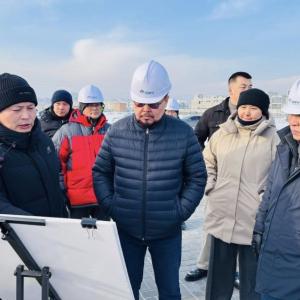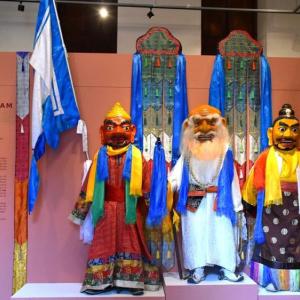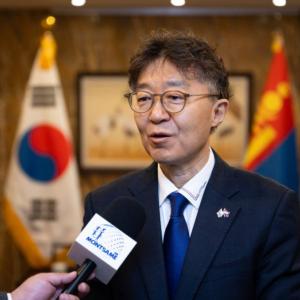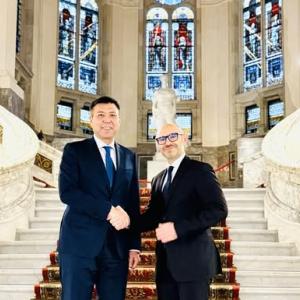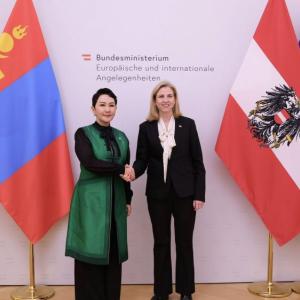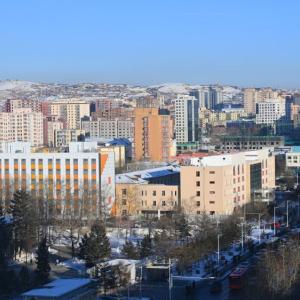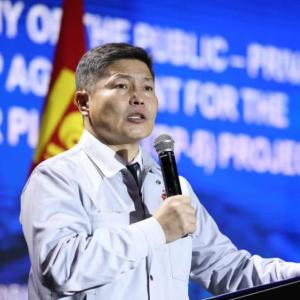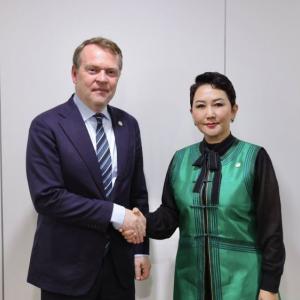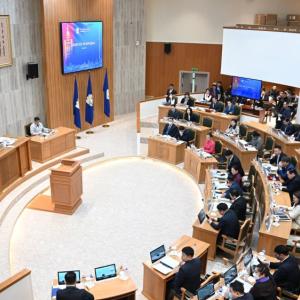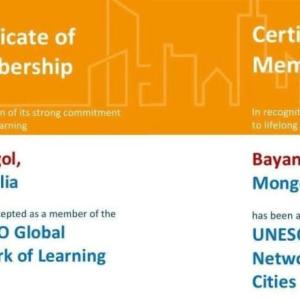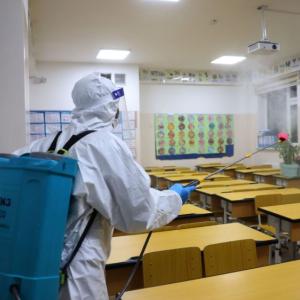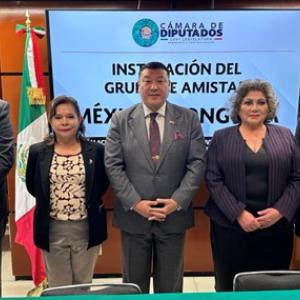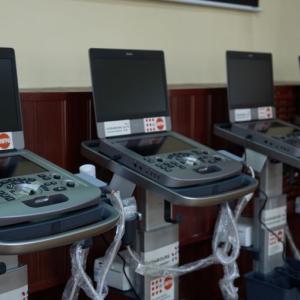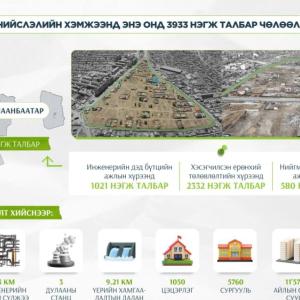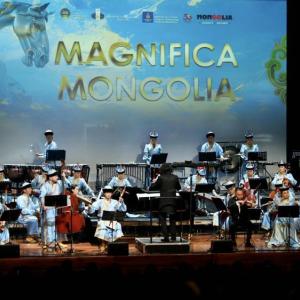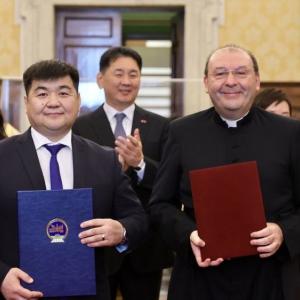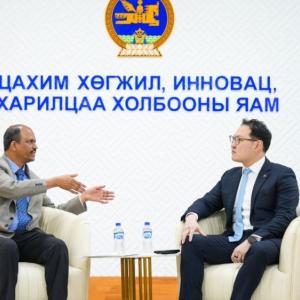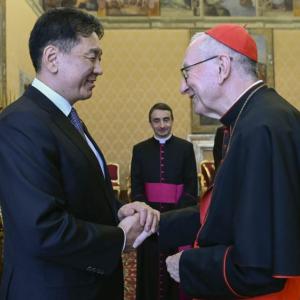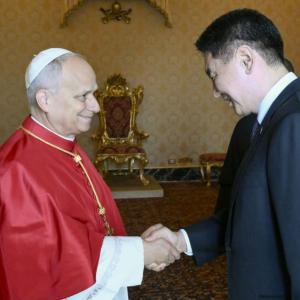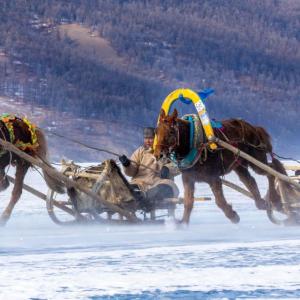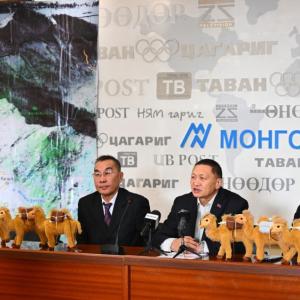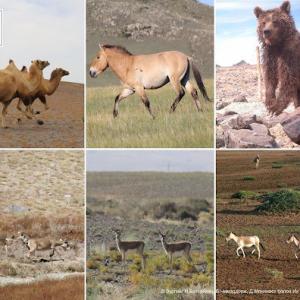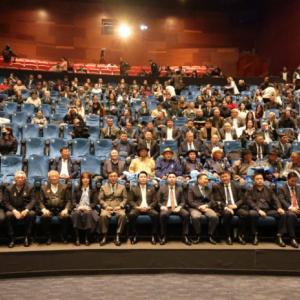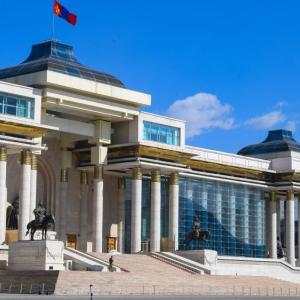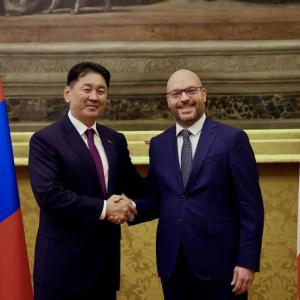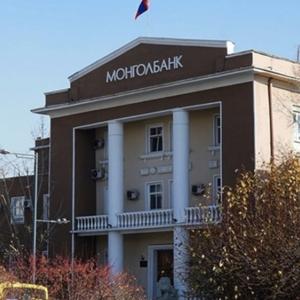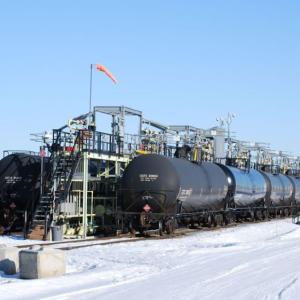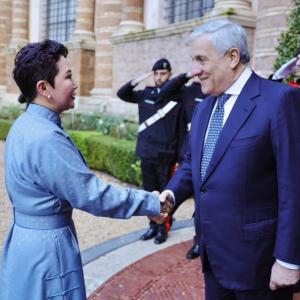US Ambassador anticipates no big changes in US policy
The Mongol MessengerThis year marks the 30th anniversary of the establishment of US-Mongolia diplomatic relations. On February 15, the Ambassador Extraordinary and Plenipotentiary of US to Mongolia, Ms. Jennifer Zimdahl Galt received journalists in the American Ger, erected on the premises of the US Embassy in Ulaanbaatar with an exhibition of historic photographs showcasing the highlights of our 30-year diplomacy.
The traditional Mongolian dwelling next to the US Embassy building was named “Altai Denali” after two of the most ancient national parks of the two countries, the Altai Mountains National Park of Mongolia and Denali National Park of the USA.

“Together with the Mongolian Ministry of Foreign Affairs we celebrated the actual anniversary of the establishment of our diplomatic relations on January 27th with academic conference, photo exhibit, reception and concert of US and Mongolian musicians. We are looking forward to continuing the celebration throughout 2017, and one of the highlights will be the visit of Philadelphia orchestra expected in June”, said the Ambassador at the beginning of this press meeting.
She noted that her main goal as ambassador is to focus on revitalizing and diversifying the economy, to strengthen Mongolia’s democratic institutions, and to promote already established strong defense ties and Mongolia’s positive engagement with regional and multilateral institutions.
The Ambassador noted that, in the coming years, the United States will continue to stand firmly with Mongolia as Mongolia and the US build on this “very strong foundation”, mentioning that the ties that bind Mongolia and US have been consolidated with countless exchanges, visits and agreements.
When asked about the pending inclusion of Mongolia in temporary worker programs, she affirmed that Ministry of Foreign Affairs of Mongolia indeed submitted a formal request to join the US Department of Homeland Security’s temporary worker program, otherwise known as H2 program, which would enable Mongolian citizens to apply for H2 visas for temporary or seasonal employment in the US, subject to annual numerical limitations.
 “To qualify for the H2 program, Mongolia must continue to cooperate with Homeland Security regarding the documentation and repatriation of Mongolian nationals, subject to removal proceedings from the United States. As of January of this year, the Department of Homeland Security designated Mongolia as eligible for inclusion in this program based on Mongolia’s recent positive track record for issuing documents for Mongolians undergoing removal proceedings. Although this is ultimately the Department of Homeland Security’s decision, my embassy supports this and it would issue a legal outlet for Mongolians wishing to work in the United States”, she said.
“To qualify for the H2 program, Mongolia must continue to cooperate with Homeland Security regarding the documentation and repatriation of Mongolian nationals, subject to removal proceedings from the United States. As of January of this year, the Department of Homeland Security designated Mongolia as eligible for inclusion in this program based on Mongolia’s recent positive track record for issuing documents for Mongolians undergoing removal proceedings. Although this is ultimately the Department of Homeland Security’s decision, my embassy supports this and it would issue a legal outlet for Mongolians wishing to work in the United States”, she said.
“We will formally nominate Mongolia for inclusion in the H2 program by April. However, there is no guarantee that the nomination will be approved”, said Ms. Galt, and added that the US Embassy will keep everyone up to date with the process.
On her impressions about Mongolia while actually working in this country, the Ambassador mentioned the level of partnerships between the states and administrative units of Mongolia and US have reached high levels, such as the defense and other sector partnerships between Alaska and Mongolia in general and cooperation between the capital of Ambassador’s home state Colorado Denver and Ulaanbaatar.
“In 2016, we celebrated the 25th anniversary of the Peace Corps in Mongolia, which was a huge milestone. This year, we look forward to expanding our Peace Corps program with healthcare projects. We also expect to continue our military partnership. We are very pleased with Mongolia’s decision to maintain its presence in Afghanistan”, she noted and expressed that she is extremely proud of two countries’ military partnerships.
“We also wish to expand our people-to-people exchange. We launched a new high school exchange program last year, and we are extending that. We also have a new Young Leaders program, which was announced by Secretary Kerry when he visited Mongolia in June last year”.
“We are very happy to have finalized the Transparency agreement around early January. It will be taking force in March 20. Enforcement of this agreement is a very clear signal for investors that Mongolia is worthy of their consideration as investment destination to open their businesses”, emphasized the Ambassador.
“Revitalization and diversification of Mongolian economy has always been my highest priority since my arrival as ambassador. Currently, our focus is on working with the IMF to develop a robust package that will be expectable to the Mongolian government. Beyond that, we are also working with our business partners, including the American Chamber of Commerce in Mongolia and the North American-Mongolian Business Council to encourage American business companies to do their due diligence and investigate opportunities for investment and trade in Mongolia”.
“The US is the largest contributor to the finance package for the Oyu Tolgoi project. We are also heavily invested in pursuing the successful development of export-oriented agriculture products. We brought a US trade delegation to Mongolia in the agricultural sector last year, and we will bring another this year focusing also on the agriculture, but for extending renewable energy, franchising and logistics.
 A second thing we are doing to improve the investment environment is that we have a project being implemented through our US Agency for International Development called 'Reach'. Its goal is to help provide financing for small and medium Mongolian enterprises. In the project’s first several months of operation, it has already helped nearly 200 small and medium enterprises across a broad range of business areas borrow nearly USD 9.0 million. The goal of this project is to support 500 SME loans worth USD 25.0 million over two-year period.
A second thing we are doing to improve the investment environment is that we have a project being implemented through our US Agency for International Development called 'Reach'. Its goal is to help provide financing for small and medium Mongolian enterprises. In the project’s first several months of operation, it has already helped nearly 200 small and medium enterprises across a broad range of business areas borrow nearly USD 9.0 million. The goal of this project is to support 500 SME loans worth USD 25.0 million over two-year period.
A third component of our economic strategy is the Millennium Challenge Corporation. The MCC is currently in discussion with the Mongolian government toward the development of the second compact. The millennium challenge and the Government of Mongolia have chosen to focus on a bulk water project. The specifics of that project are not yet clear. But we hope very much that MCC will be able to realize a second compact in Mongolia”.
On stricter policies of the US on visas and illegal immigrants with the new administration, Ambassador Galt said the government of Mongolia has expressed interest in joining the visa waiver program. “We are working with the government toward that long-term goal. Mongolia must comply with a number of regulations having to do with security, travel and legal issuance of passports etc. in order to meet the requirements of the visa waiver program, and we continue to work very closely with the Ministry of Foreign Affairs toward that goal”, she went on.
Again, on the changes of policies toward immigrants and Mongolia-US relations now with the new administration and presidency in the US, ‘one of the great pleasures of working in Mongolia is that both Mongolia and the United States are democracies" she said. We understand the peaceful transition of power in democracies. As we saw with Mongolian parliamentary elections last June, every new government puts in place new policies. So, we anticipate the new administration in the US, which is still in transition, will put new policies in place around the world.
Having said that, US policy toward Mongolia has had bipartisan support for both republican and democratic administrations for the 30 years of our partnership and the US interest in Asia and the Pacific and Mongolia has not changed. So, I do not anticipate big changes in the policy toward Mongolia. With regard to visas, the new administration is still in the process of formulating its policies toward immigrants, as well as non-immigrants and refugees to the US. The first policy that was put forward, which has now been halted, did not include Mongolia among the countries of focus. I am not currently aware of any policy particularly directed at visas for Mongolia”.
On the issue of neutrality of Mongolia, the US Ambassador said “we are aware of President Ts.Elbegdorj’s proposal to declare Mongolia neutral raised at the UN General Assembly of September 2016. We followed the discussion very closely and asked a lot of questions about the policies it was being formulated. It is my current understanding that the proposal has been forwarded to Mongolia's Parliament and it is currently under discussion”.
To a journalist’s question about what would happen to Mongolia and other smaller countries’ place in the US policies under Trump’s “America’s First!” motto, Ms. Galt answered: “As I said, the US policies toward Asia-Pacific and Mongolia enjoy bipartisan support. The military, economic, political and people-to-people interests of the United States do not change with the new administration. I wish to say to the Mongolian people ‘not to expect any significant change in US policy toward Mongolia’”.
Finally, about the lessons Mongolia can learn from the centuries-old US democracy as a younger democracy aged less than three decades, the Ambassador applauded the question saying “that is a very good question”.
She continued saying that “we are still working toward what we call a more perfect union in the US among our 50 states. One of the things that we work on with Mongolia is to try to strengthen its democratic institutions. We strongly believe that democracy relies on the rule of law which requires very strong institutions, this means a strong parliament, a strong presidency and a strong legislative branch. We have a unique system in the US based on our unique history. As someone once mentioned, we are a ‘country of immigrants’. Mongolia has chosen its own style of democracy, as it should. But one of the things that we would encourage for the Government of Mongolia and what we work on with the government, is to strengthen the institutions of democracy”.
On the possibility to lower visa application fees, she said that US visa fees are set worldwide, are the same everywhere around the world, and are based on covering US Embassy costs. “So visa applicants pay what it costs us to process a visa. We are always working in Mongolia and other countries to improve the efficiency of visa processing so we can keep our fees as low as possible, but visa applicants pay for the service. One of the improvements we made in the visa processing in Mongolia, is the Ger you are sitting in today”, she underlined.
“We heard many complaints coming from the visa applicants in Mongolia about the fact that they had to wait outside in the cold for very long time for their visa appointments. So, this American Ger was built in the United States has solar heating, and its floor is heated. As you see, our consular customers now have a very warm and comfortable place to wait for their appointments”.
“In addition to being warm and comfortable, people can see some of the highlights of 30 years of diplomatic relations between the US and Mongolia” she concluded and thanked the reporters for their time.
B.Tuul, B.Amarsaikhan
The article was first appeared in the Mongol Messenger's issue No.8-9 for February 24.
 Ulaanbaatar
Ulaanbaatar





